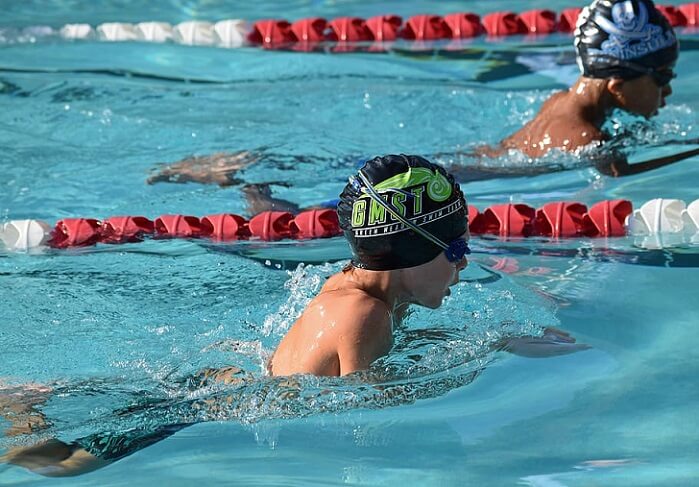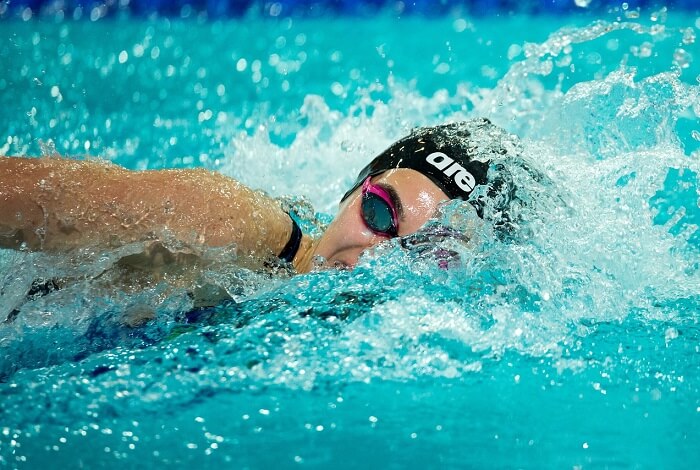Majority of the people think that exercise can make you hungrier, so they may therefore eat more during subsequent meals. But for the typical person, single sessions of land-based moderate to high-intensity exercise (such as swimming, running, resistance exercise and sprint cycling) have been shown to temporarily decrease appetite and do not commonly lead to increased food intake on the same day.
But an important question here is “why does swimming make you hungry?” To date, this anecdotal question has not been tested in a rigorously designed experimental study. A study was conducted with 32 healthy adults under the age of 40 years (17 men and 15 women) who were able to swim and cycle at a recreational – rather than elite – level. None of the participants were obese. And because the menstrual cycle can influence appetite, we made sure female participants exercised during the same part of their cycle each month and were not pregnant. The participants completed all three trials (swimming, cycling, or resting) in a random order, separated by at least four days – so the effects of the prior trial no longer remained.

Participants were provided with a set breakfast, which they ate at home between 8:45am and 9:00am. Once they arrived at the laboratory, their appetite was measured using a scale at multiple times throughout the day. The participants rested throughout all three trials, except when performing 60 minutes of cycling or swimming in the exercise trials. The exercise sessions began 90 minutes after breakfast.
Thirty minutes after exercise – and at the equivalent time in the resting trial – participants were able to eat as much pasta as they wanted until “comfortably full and satisfied”. It’s found that the participants ate more during the swimming trial, which on average was 142 kcal more than in the control trial. This is equivalent to a 25g packet of crisps or two digestive biscuits. Participants also felt hungrier after the swimming trial and felt that they could eat more at the next meal. And though participants also ate more after cycling (94 kcal on average) compared to the control trial, this difference was too small to be statistically significant.

The reason for this appetite-stimulating effect of swimming is not understood. One possible reason relates to the suggested link between temperature (specifically body heat loss) and food intake. In colder temperatures, food intake may increase as a mechanism to generate body heat through diet-related thermogenesis. Thermogenesis is the body’s process of using energy to produce body heat. Despite the fact that swimming would have generated body heat during our experiment, immersion in the cool water would likely have led to overall body heat loss. Further research studies in swimming are needed to confirm this.
It’s also possible that changes in brain signals and neurotransmitters might be a factor in increasing appetite. This is plausible because there are specific regions of the brain linked to appetite and reward, and non-homeostatic factors can also influence appetite and eating behaviour. But detailed brain imaging studies are needed to address this.
Studies have shown that swimming may not be as effective as other types of exercise for weight management. However, these findings lend preliminary support to this because of the increase in hunger and food intake after the swimming session. But follow-up studies are needed to examine more prolonged effects of swimming on appetite and energy balance. To conclude, swimming is an excellent exercise, but you need to be cautious about the increased appetite this would create, that will not eventually provide weight-loss.




![The Top & Most Popular Seafood Bucket Restaurants in Dubai for you [Never Miss]](https://uae24x7.com/wp-content/uploads/2020/09/8-seafood-in-a-bucket-scaled-e1600739237403.jpg)
![Procedures for Renewing the Driving License in Abu Dhabi [3 Simple Steps]](https://uae24x7.com/wp-content/uploads/2020/07/Capture-9-e1595666454466.jpg)





